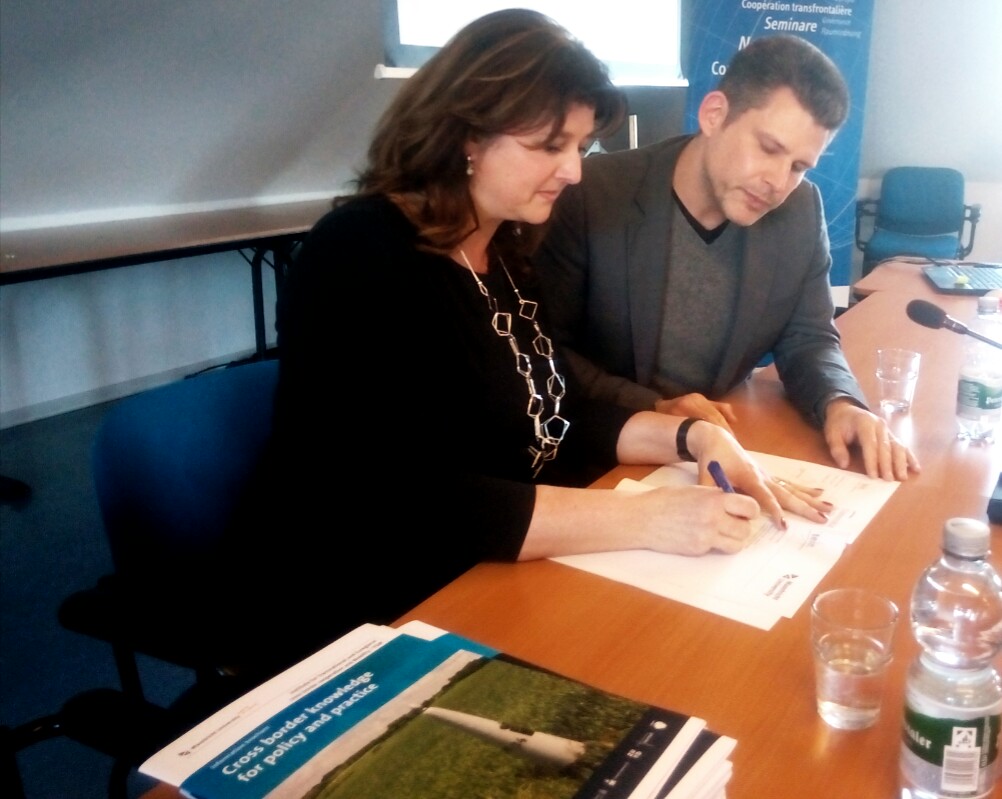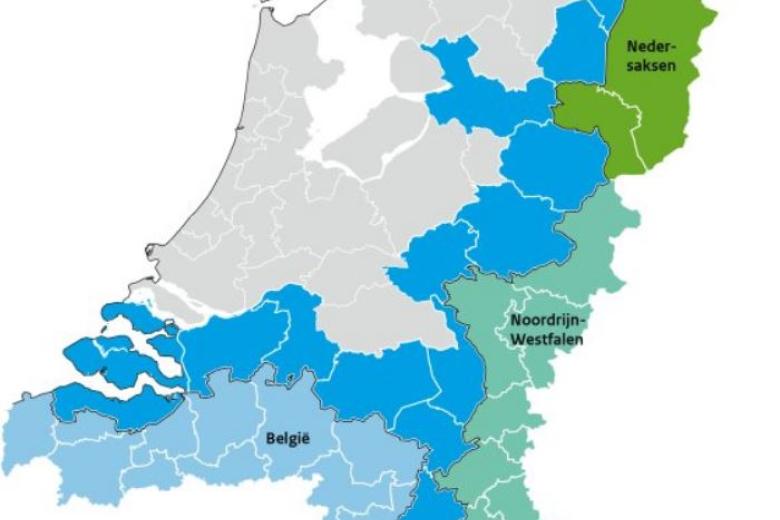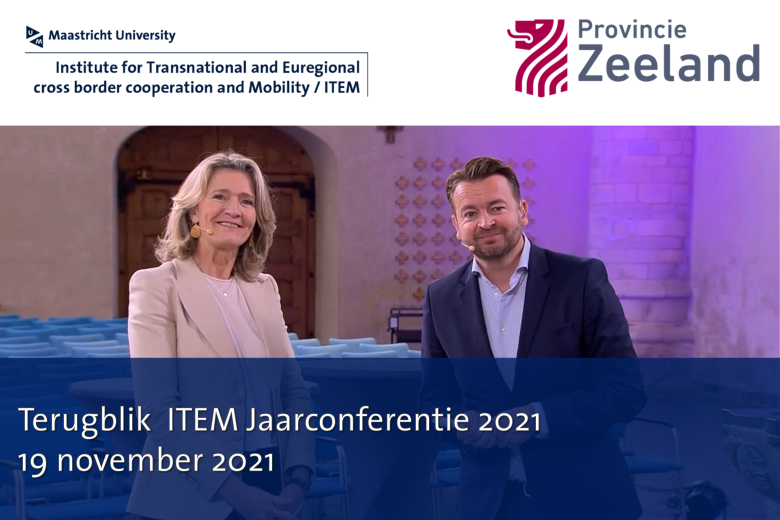ITEM joins TEIN network of cross-border organisations
The Institute for Transnational and Euregional cross border cooperation / ITEM is glad to have become a member of TEIN (Transfrontier Euro-Institut Network), the network for cross-border institutes and universities. With its membership, Expertise Centre ITEM will strengthen its cooperation with other institutes and universities in border regions.
The membership declaration was signed by the Director of Expertise Centre ITEM, Prof. dr. Anouk Bollen and Director of the Euro-Institut, Georg Walter following the TEIN Network meeting on Wednesday 21 March 2018 hosted by the Euro-Institut in Kehl.

TEIN
The Transfrontier Euro-Institut Network (TEIN) is a network of excellence in transfrontier training, research and support services throughout Europe. TEIN was formed in 2010 and is led by the Euro-Institut in Kehl/Strasbourg. Its unique feature is that it consists of universities, research institutes and training centres among eight border regions in Europe, which are dedicated to the practical business of cross-border cooperation. The aim of TEIN is to strengthen European integration by building capacity in cross-border contexts.
Also read
-
Provincial elections from a cross-border perspective
On Wednesday 15 March 2023, there will be elections in the Netherlands. We will then vote for the Provincial Council and the District Water Board. Seven of the 12 Dutch provinces border a neighbouring country. Cross-border cooperation and special attention for border regions is therefore extra...
-
Recap ITEM Annual Conference 2021: Empowering border regions - More than ever?
The importance of cross-border cooperation manifests itself more than ever during the coronapandemic. Multi-level governance is the foundation for taking the next steps; looking for each other and perpetuating relationships at all levels, in administration, politics and practice. This became clear...
-
Working from home will disadvantage cross-border workers unless rules are changed
Unless the EU rules and tax treaties are amended, some cross-border workers will soon have to pay tax in two countries: in their country of residence for hours spent working from home, and in the country in which they work for hours spent in the office. Since COVID-19 has made working from home often...